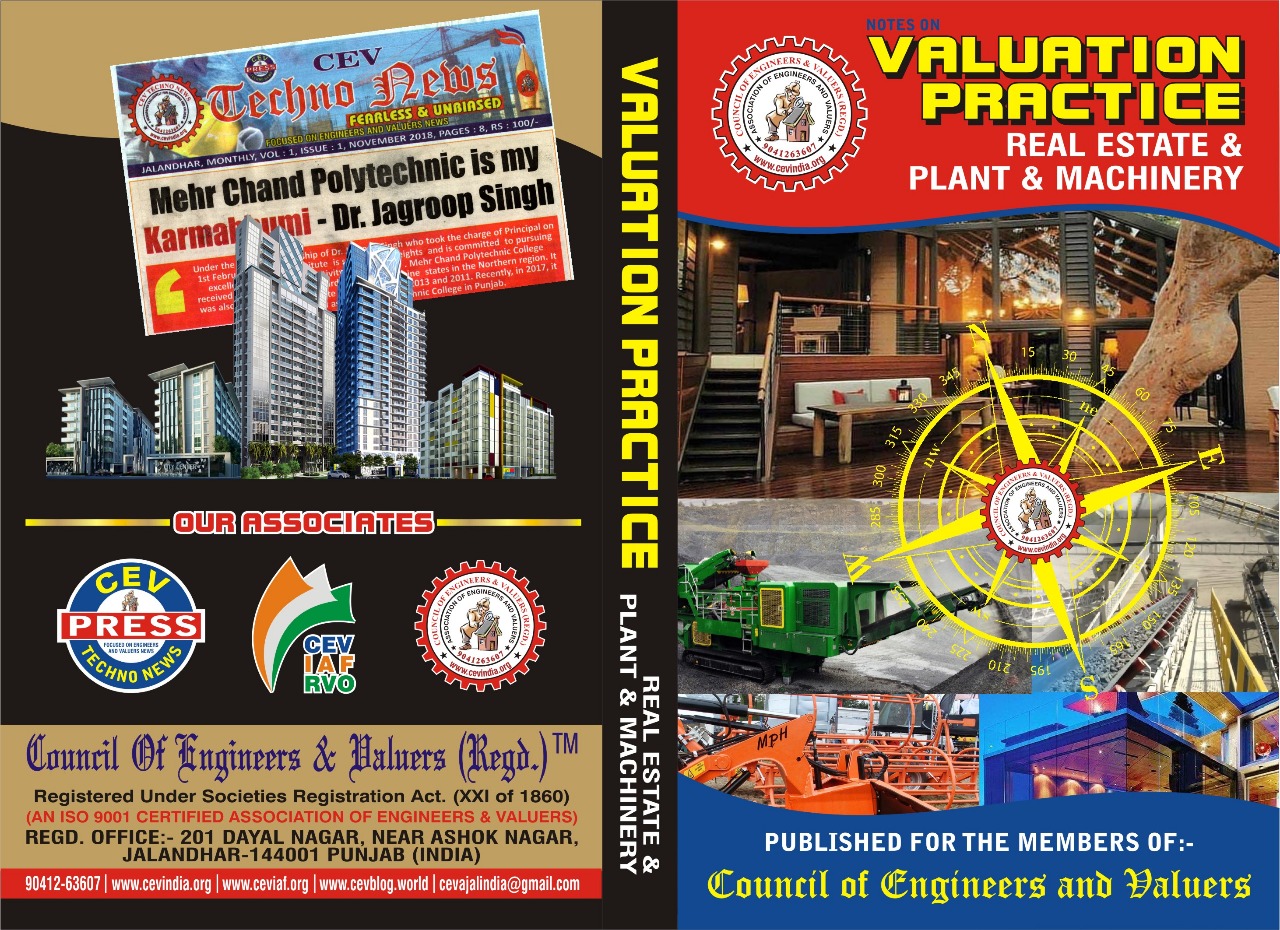INFORMATION ON ARBITRATION, MEDIATION & CONCILIATION USEFUL FOR EXAMINATION PURPOSES
COMPILED BY ER. VAIBHAV BANSAL
ARBITRATION
Arbitration is a means of securing an award on a conflict issue by reference to a third party. It is a process in which a dispute is submitted to an impartial outsider who makes a decision that is usually binding on both parties. t is a process where there is a hearing and a determination of a cause between parties in controversy by a person or persons chosen by them, or appointed under a statutory provision. The parties submit their disputes/issues and are bound by the award of an arbitrator in relation to the matter which is in dispute between them. The arbitrator enforces his own point of view on the contending parties and the opinions of the participants are not given any predominance. The award of the arbitrator is binding and rests on equity and justice, i.e., there is no scope for compromise.
ADVANTAGES OF ARBITRATION
Since it is established by the parties themselves, arbitration has the particular advantage of bringing the dispute settlement procedure down to the level of the parties to the dispute. Workers and management tend to have greater faith and confidence in settlement machinery which is in effect their own.
Since arbitration is established by agreement, it is more flexible than other procedures and can be adjusted to the views, desires, and experience of the parties and to the circumstances obtained in the undertaking or industry.
This procedure, operating at the level closest to the parties to the disputes, has the advantage of enabling the arbitrators to acquire a much greater familiarity with the characteristics of the particular industry or undertaking than most courts or tribunals.
The procedure is relatively expeditious when compared to that in ordinary courts or labor tribunals. It cuts down delays and results in a prompt settlement of differences.
It is informal in character because the disputes are handled by the parties themselves, often without recourse to lawyers. Arbitration, therefore, is less expensive than other procedures.
Awards are capable of implementation without any grudge on the part of both the parties of the dispute and do not lead to further chances of litigation.
Since arbitration is based on the consent of both parties, it helps build up a sound base for healthy industrial relations, mutual understanding, and cooperation.
TYPES OF ARBITRATION
Voluntary arbitration: implies that the two contending parties, unable to compose their differences by themselves or with the help of the mediator or conciliator, agree to submit the conflict/dispute to an impartial authority, whose decision they are ready to accept. n other words, under voluntary arbitration, the parties to the dispute can, and do, themselves refer voluntarily any dispute to arbitration before it is referred for adjudication.
Compulsory Arbitration:- Compulsory arbitration, is one where the parties are required to accept arbitration without any willingness on their part. When one of the parties to an industrial dispute feels aggrieved by an act of the other, it may apply to the appropriate government to refer the dispute to adjudication machinery. Such reference of a dispute is known as ‘compulsory’ or ‘involuntary’ reference because reference in such circumstances does not depend on the sweet will of both the contending parties or any party to the dispute. It is entirely the discretion of the appropriate government based on the question of existing dispute, or on the apprehension that an industrial dispute will emerge in a particular establishment.
Reference of Dispute to Arbitration Under Industrial Disputes Act, 1947:-
Under the Industrial Disputes Act, 1947, a dispute may be referred to arbitration under the following conditions:
An industrial dispute exists or is apprehended in an establishment;
The employer and the workers agree, in writing, to refer the dispute to arbitration
The arbitration agreement is in the prescribed form and signed by the parties to it in the prescribed manner
The agreement must be accompanied by the consent, in writing, of the arbitrator or arbitrators
The dispute must be referred to arbitration at any time before it has been referred to a labour court or tribunal or a national tribunal.
The reference must be to the person or persons specified in the arbitration agreement to act as arbitrator/arbitrators. The arbitration agreement must set forth the issue/issues to be decided by the arbitration procedure and a copy of the agreement is forwarded to the government and the conciliation officer.
PROCEDURE FOR INVESTIGATION
After the dispute has been referred to the arbitrator, he will hear both parties. Hearing involves mastery of the facts of a particular dispute as well as the relevant provisions of the collective agreement and of the past practices of the parties in relation to matters relevant to the dispute. An investigation of the facts and circumstances of the dispute is of great importance. The arbitrator may call witnesses, get evidence and relevant records and documents, (bearing on the case) and arbitration decisions by other arbitrators in similar cases, that may suggest a line of reasoning. When an important witness is unable to attend, sworn affidavit is often used.
After the collection of facts and supporting materials, arguments take place. Certain principles are followed by an arbitrator while dealing with a particular dispute, namely: A fair hearing, which demands that an opportunity should be given to both the parties to be heard and cross-examined. The principle of natural justice requires that a party should have due notice of proceedings, and it must know what are the issues involved and what part it has to play. The party should be free to give any evidence which is relevant to the inquiry and on which it relies for its arguments. The evidence given by one party should be taken in the presence of the other party so that the other party may rebut and place counter-evidence, if necessary.
The arbitrator should not rely on any document which is not shown and explained to the other party and to which a reply has not been received. He has to be completely impartial without any bias or prejudice against anybody.
SUBMISSION OF AWARD
The arbitrator, after investigating the dispute, has to submit his award to the government.
The award will have the same legal force as the judgment of a labour court or tribunal.
The award must be signed by the arbitrator.
While writing his award, the arbitrator has to ensure that: the award is in line with the terms of reference and that it does not go beyond its jurisdiction; It must be precise and definite, that is, it must be clear, unambiguous, and without any, vagueness, and that it is not in any way capable of being misunderstood or misinterpreted; It should be capable of being enforced or implemented; in other words, it should not contain directives or provision which apparently seem impossible of enforcement.
The award should contain a date or a specific period for its implementation; the award should not violate any provision of any existing law or settlement legally arrived at, or one which is binding on parties. The award should contain sufficient justification or reasons for the settlement arrived at by the arbitrator.
MEDIATION
Mediation, as used in law, is a form of alternative dispute resolution (ADR), a way of resolving disputes between two or more parties with concrete effects. Typically, a third party, the mediator, assists the parties to negotiate a settlement. Disputants may mediate disputes in a variety of domains, such as commercial, legal, diplomatic, workplace, community, and family matters.
The term “mediation” broadly refers to any instance in which a third party helps others reach an agreement. More specifically, mediation has a structure, timetable, and dynamics that “ordinary” negotiation lacks. The process is private and confidential, possibly enforced by law. Participation is typically voluntary. The mediator acts as a neutral third party and facilitates rather than directs the process.
THE BENEFITS OF MEDIATION
Mediation often improves understanding between the parties in an ongoing relationship.
Compared with going to court, mediation is:
less expensive
quicker
more informal
less stressful
Mediation is voluntary; The parties and the mediator have the right to withdraw at any time, although this is rare.
Cost—While a mediator may charge a fee comparable to that of an attorney, the mediation process generally takes much less time than moving a case through standard legal channels
Less Time – While a case in the hands of a lawyer or a court may take months or years to resolve, mediation usually achieves a resolution in a matter of hours.
WHO CAN BE A MEDIATOR
A mediator is a neutral third person who encourages those in the dispute to talk to each other about the issues. The mediator is not an advice-giver or decision-maker. The parties examine the real problems, large or small. They then create and agree upon an outcome that meets their needs and addresses their concerns.
Mediators use various techniques to open, or improve, dialogue and empathy between disputants, aiming to help the parties reach an agreement. Much depends on the mediator’s skill and training. As the practice gained popularity, training programs, certifications, and licensing followed.
CRITERIA OF A MEDIATOR
The following are useful criteria for selecting a mediator:
Personal attributes—patience, empathy, intelligence, optimism, and flexibility
Qualifications—Knowledge of the theory and practice of conflict, negotiation and mediation, mediations skills.
Experience— mediation experience, experience in the substantive area of dispute, and personal life experience
Training, Professional background, Certification, and its value, Suitability of the mediation model, Conflicts of interest.
Conclusion: The Mediation should conclude with a final re-statement and clarification of the terms of the resolution by the mediator.
CONCILIATION
‘Conciliation’ is limited to encouraging the parties to discuss their differences and to help them develop their own proposed solutions.
It is a voluntary, flexible, confidential, and interest-based process. The parties seek to reach an amicable dispute settlement with the assistance of the conciliator, who acts as a neutral third party
Commencement of conciliation proceedings:- S.62
The conciliation proceedings can start when one of the parties makes a written request to the other to conciliate, briefly identifying the dispute.
The conciliation can start only if another party accepts in writing the invitation to conciliate.
Unless there is written acceptance, conciliation cannot commence. If the other party does not reply within 30 days, the offer for conciliation can be treated as rejected.
CONCILIATOR:-
The conciliator is a neutral party, who without using any force, seeks to find some middle course for mutual agreement between the disputants so that the deadlock is brought to an end at the earliest possible moment and normal peace restored.
He tries to bridge the gulf between the two contending parties; and if he does not succeed, he tries to reduce the differences as far as possible, by tendering advice to them and working out an amicable settlement.
He cannot suggest solutions but suggests alternative solutions
Appointment of conciliators. – s. 64 (1) &(2) (1) . Subject to sub-section (2), – of sec.64
(a). In conciliation proceedings with one conciliator, the parties may agree on the name of a sole conciliator;
(b). In conciliation proceedings with two conciliators, each party may appoint one conciliator;
(c). In conciliation proceedings with three conciliators, each party may appoint one conciliator and the parties may agree on the name of the third conciliator who shall act as the presiding conciliator. (2). Parties may enlist the assistance of a suitable institution or person in connection with the appointment of conciliators, and in particular, –
(a). A party may request such an institution or person to recommend the names of suitable individuals to act as conciliator;
(b). The parties may agree that the appointment of one or more conciliators be made directly by such an institution or person:
Role of a Conciliator:- S.67
As a Discussion Leader
As a safety valve
As a Communication link
As an Innovator
As a Sounding board
As a Protector
As a Fail-safe device
Conciliator not bound by certain Enactments: – S. 66 •The conciliator is not bound by the Code of Civil Procedure, 1908 (5 of 1908) or •The Indian Evidence Act, 1872 (1 of 1872).
What Can Be Referred To Conciliation? Matters of a –
Civil nature
Breach of contract
Disputes of movable or immovable property
What Cannot Be Referred To Conciliation? Matters of –
Criminal nature
Illegal transactions
Matrimonial matters like divorce suit etc.
After the proceedings:- s.71 cooperation of parties with the conciliator
Before proceedings, the conciliator shall request each party to submit a statement explaining the nature of the dispute.
The statement must clearly specify and state the conciliator’s position and the facts and grounds in support thereof.
During the proceedings, the conciliators can call for further information from the parties and S.71 calls for cooperation by parties.
Section 76 Termination of Conciliation Proceedings The conciliation proceedings shall be terminated –
(a) by the signing of the settlement agreement by the parties, on the date of the agreement; or
(b) by a written declaration of the conciliator, after consolation with the parties, to the effect that further efforts at conciliation are no longer justified, on the date of the declaration; or
(c) by a written declaration of the parties addressed to the conciliator to the effect that the conciliation proceedings are terminated, on the date of the declaration; or
(d) by a written declaration of a party to the other party and the conciliator, if appointed, to the effect that the conciliation proceedings are terminated, on the date of the declaration.
Advantages of conciliation:
Conciliation ensures party autonomy.
Conciliation ensures the expertise of the decision-maker.
Conciliation is time and cost-efficient.
Conciliation ensures confidentiality.
The uniqueness of Conciliation:-
A conciliator generally does not follow the same procedure in every case.
The conciliator makes adjustments to his approach, strategy and technique according to the circumstances of each dispute.
TO KNOW ABOUT THE AUTHOR CLICK THE LINK BELOW

RELATED POSTS:-
How to become a Registered Valuer under Companies Act? ALL YOU NEED TO KNOW -An Overview
UNDERSTANDING DIFFERENCE BETWEEN REPRODUCTION, RECONSTRUCTION, REPLACEMENT & REINSTATEMENT
USEFUL INFORMATION ON CONTRACTS & VALUATION: BEAUTIFULLY COMPILED ARTICLE PRESENTATION WORTH READING
Difference Between Pledge, Hypothecation, Mortgage & Assignment-All You Need to Understand
Disclaimer :
We take all possible care for accurate & authentic news/empanelment/tender information, however, Users are requested to refer Original source of the Notice / Tender Document published by the Issuing Agency before taking any call regarding this tender.




